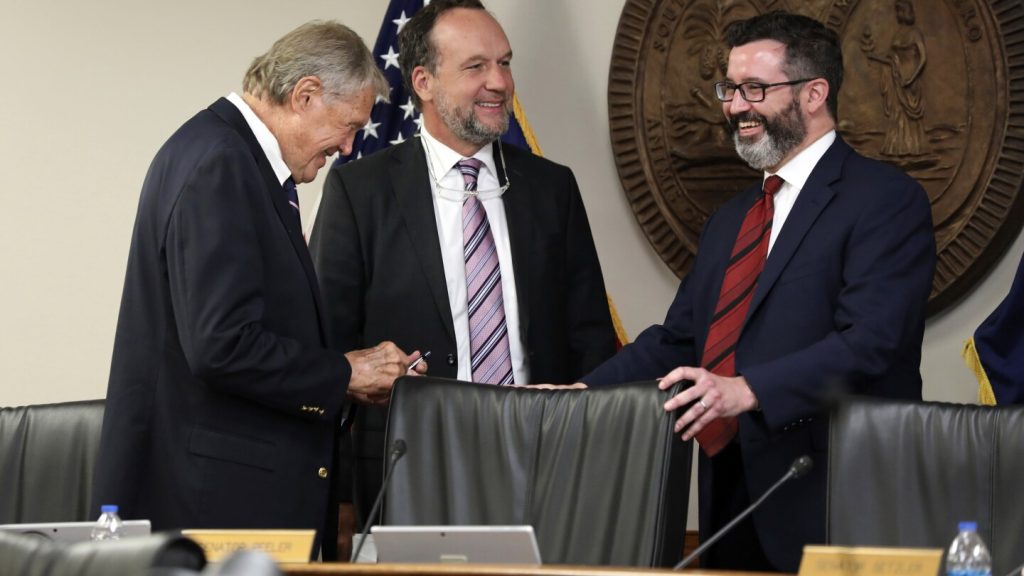Lawmakers in South Carolina have reached a budget compromise that includes accelerating an income tax cut, increasing salaries for teachers and state employees, and allocating more funds to adult and juvenile prisons. The $13 billion spending plan for the next budget year will be sent to the House and Senate for approval at a special session. Additionally, social issues such as banning cellphones in schools, regulating bathroom use based on sex assigned at birth, and requiring libraries to prevent access to inappropriate material will be included as one-year special items in the budget.
The budget for fiscal year 2024-2025 focuses on tax cuts, with the Senate opting to reduce the income tax rate from 6.4% to 6.2% instead of a House-proposed one-time $500 million property tax rebate. This move is part of a five-year effort to decrease the state’s top income tax rate from 7% to 6%. The state’s surplus funds will also be used for infrastructure projects like bridges, roads, sewer, and water systems. This decision was made to avoid potential backlash from homeowners if a property tax cut was implemented temporarily.
In terms of salary increases, the House and Senate have agreed on giving a $1,125 yearly raise to state employees making under $50,000, while those earning more will receive a 2.25% raise. The budget allocates $200 million for raising teacher pay, with every teacher getting a raise and the starting salary for new teachers increased to $47,000 a year. Additional funding is designated for projects like the new school for veterinary medicine at Clemson University and a medical school at the University of South Carolina. Investments in upgrading the state’s Department of Juvenile Justice prisons and implementing technology to prevent cellphone use by inmates are also included.
As the new budget year begins on July 1, there is a tight timeline to pass the spending plan through the General Assembly and for the governor to review and potentially issue vetoes. Lawmakers stress the importance of thorough negotiations to ensure all perspectives are considered in the budget process. Republican Senate Finance Committee Chairman Harvey Peeler emphasizes the need to listen to different ideas and avoid a “my way or the highway” approach to reach a consensus. The weeks of negotiations are aimed at creating a budget that addresses the various needs and priorities of the state.
Overall, the budget compromise in South Carolina reflects a balance of priorities, including tax cuts, salary increases for teachers and state employees, and investments in infrastructure and prison facilities. The inclusion of social issues as special items in the budget highlights the diverse range of topics addressed by lawmakers. With a focus on fiscal responsibility and meeting the needs of residents, the budget aims to support economic growth and provide resources for essential services. As the budget moves through the approval process, stakeholders will continue to monitor developments and ensure that funds are allocated effectively to benefit the citizens of South Carolina.


